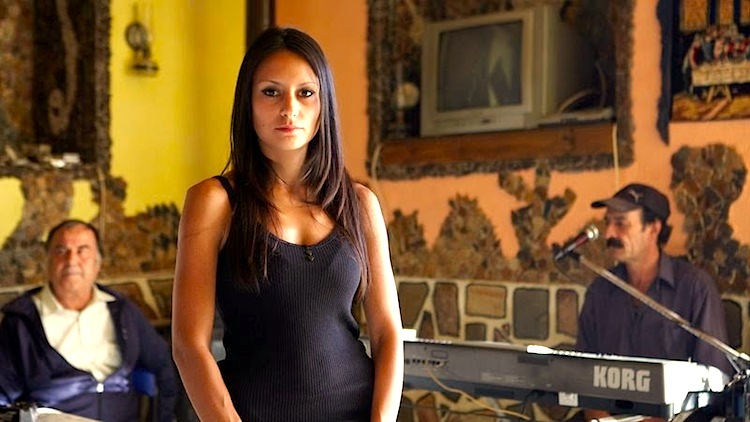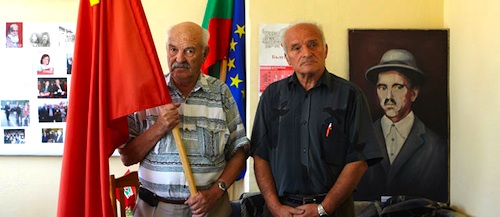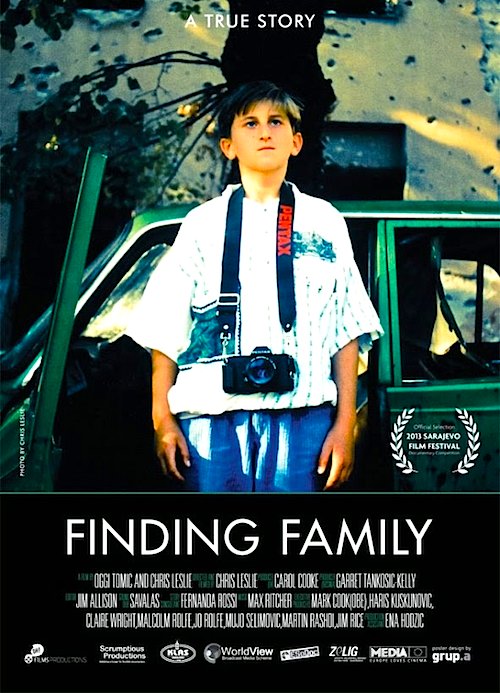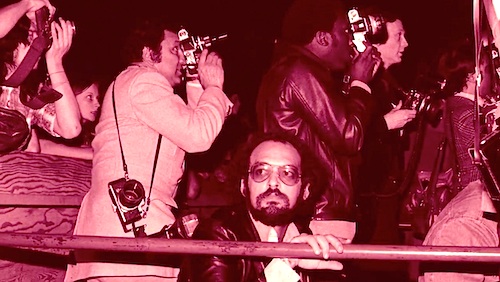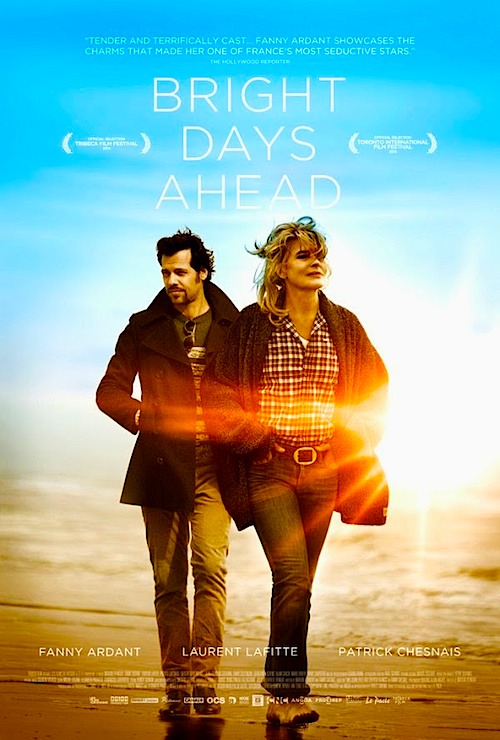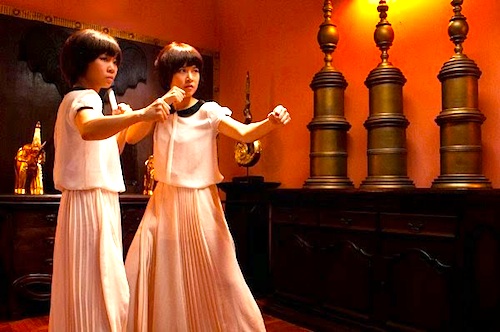By Joe Bendel. In Communist Poland, a vow of poverty hardly mattered. For one nun in training, the most challenging part of her novitiate will be meeting her sole living relative. It leads to some profound soul searching in Pawel Pawlikowski’s Ida, which opens today in New York.
Convent life is all Anna has ever known. Orphaned as an infant, the young woman will soon take her vows, but the mother superior insists she first visit her aunt Wanda. Neither has been pining to meet the other, in part because of what they represent. While Anna identifies with Poland’s strong Catholic tradition, Wanda is a notorious Stalinist era prosecutor and judge. “Red Wanda” as she is known, now lives a boozy, solitary existence, only occasionally relieved by brief “carnal” distractions. When Anna arrives unannounced, Red Wanda reveals the young woman’s true identity, almost as an act of hostility. Anna was actually born Ida Lebenstern to Jewish parents who perished during the war.
Despite her abrasive welcome, Red Wanda quickly warms to her niece, agreeing to set out with her in search of her parents’ remains. It will be a rather tricky task, given their sketchy information. Simultaneously, Red Wanda does her best to play Anna’s devil-on-the-shoulder, trying to convince her to sample some of life’s more adult pleasures before she completely renounces the secular world.
Ida might be opening May 2nd (the day after May Day), but audience members should take a heavy coat to the theater, because it is one of the chilliest films you will ever see. 1962 was a relatively stable period for Communist Poland (compared to the subsequent anti-Semitic campaign and imposition of martial law), but it was still a time of scarcity and drabness. Nonetheless, jazz was on the upswing with the smart set and not yet explicitly on the outs with the authorities. It just so happens, Lis, a talented saxophonist gigging at their provincial hotel, attracts Wanda’s leering stare and the awkwardly demur notice of her niece.
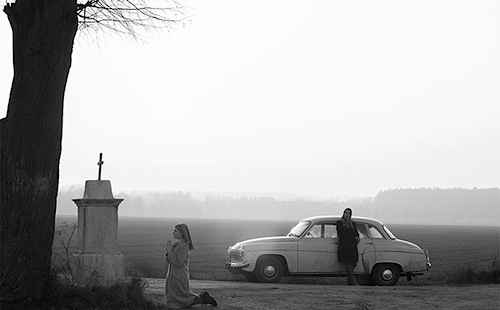
Arriving on the heels of Władsław Pasikowski’s more confrontational Aftermath, Ida is clearly part of Poland’s continuing effort to process the national WWII experience, long deferred during the Communist era. However, this is a more personal meditation on identity and family. It is also unusually beautiful, in a severe, ascetic way. Ryszard Lenczewski & Lukasz Zal’s black-and-white cinematography is absolutely arresting, while Pawlikowski strikingly composes each shot, dwarfing his figures against imposing backdrops.
Acting within such a frame is quite a challenge, but newcomer Agata Trzebuchowska seems to grow along with her character, Anna/Ida, as the film progresses. Without question though, Agata Kulesza’s Red Wanda is the most successful breaking out of Pawlikowski’s frozen tableaux with her sharp elbows and razor-like tongue. Dawid Orognik also shows flashes of presence as Lis, while Joanna Kulig briefly catches the eye and ear as Lis’s band singer.
The British-based Pawlikowski makes a bold statement with his first Polish production, aesthetically and thematically. His deliberate pace and dark vision will limit Ida’s appeal even within arthouse circles, but it is an ambitious work of auteur level cinema. Recommended for disciplined cineastes, Ida opens this Friday (5/2) in New York at Film Forum.
LFM GRADE: B+
Posted on May 2nd, 2014 at 11:50pm.
